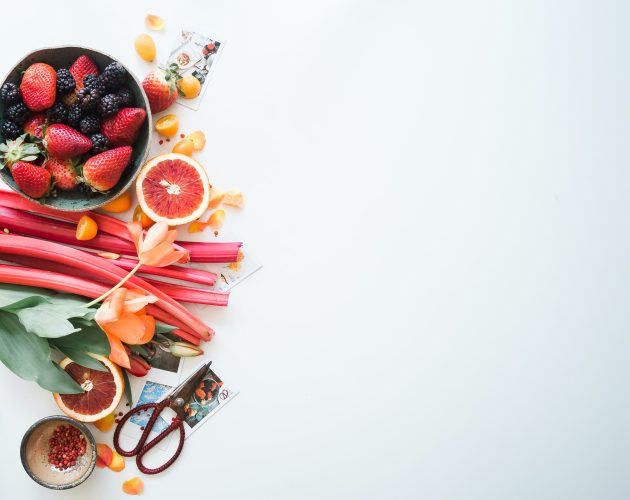
Most of you have not only heard the word, ‘detox,’ you’ve, likely, given it a go at some point or another, whether purposefully or without realising it, as part of a diet related to some sacred ritual: people eliminate entire food groups through Lent, Navratri and Ramadan, for instance. While the abstinence during religious fasts is believed to foster spiritual healing, it also affords your body a much-needed break, and gives it a chance to flush out toxins. The word detoxifying or ‘detoxing’, if you prefer the colloquial term, can, thus, refer to a number of different things, from juice cleanses and periods of time when one abstains from one or several food groups to a period when one abstains from a single substance like alcohol, for instance, or sugar. Depending on the rigour of the detox plan, the benefits to practitioners are numerous. Detoxing regularly can extend your lifespan, help fend off disease and improve overall well-being. It’s the ultimate free-health fix, a ritual that’s central to holistic wellness.
Food that remains undigested in the body gives rise to toxins. Toxins can also be created by pollution and by chemical changes in the body. Toxins affect the body at the organ and cellular level. Cleansing your body of these toxins will allow your cells to breathe and thrive.
Dr Doja Purkit

Food that remains undigested in the body gives rise to toxins. Toxins can also be created by pollution and by chemical changes in the body. Toxins affect the body at the organ and cellular level. Cleansing your body of these toxins will allow your cells to breathe and thrive.
Dr Doja Purkit

On my podcast, you’ll hear Dr Doja Purkit, an expert in detox rejuvenation and a consultant at the Hale Clinic in London, explain why detoxing is more important today than ever before, given modern lifestyles and rising pollution levels. “The body has an in-built detox mechanism that can become impaired by these external factors. That leads to a lot of food remaining undigested in the body, giving rise to toxins. Toxins can also be created by pollution and by chemical changes in the body. Toxins affect the body at the organ and cellular level. Cleansing your body of these toxins allows your cells to breathe and thrive,” he says.
Are some foods genuinely toxic?
In the context of food, the term ‘toxins’ refers to items like sugar. Consuming a lot of sugar can overload the liver. The liver metabolizes sugar the same way as it does alcohol, converting dietary carbohydrates to fat. Over time, this fat can accumulate and cause fatty liver disease, which is a contributor to diabetes, and which also raises your risk for heart disease. But wait, that’s not all. It puts you at greater risk for stroke, by causing high blood pressure and inflammation. This is just one example of a toxic food, and it may interest you to learn that the American Heart Association recommends that women limit their sugar intake to a maximum of 6 teaspoons or 24 g a day (that includes the sugar in all the foods you consume, including chips, ketchup and so on), and that men limit it to 9 tsp or 36 g. Molasses, brown sugar, honey and other less processed sweeteners are also counted as sugar in this context, and consuming these is equally harmful.
Maitri Trivedi, a nutritionist associated with Pure Nutrition Naturals, adds that it’s important to note that even the raw ingredients we use in our meals may be adulterated or inorganic – foods grown by using chemicals and pesticides – and therefore toxic. “Foods such as wheat and dairy trigger inflammation in the body. Such inflammation can exacerbate the effects of oxidative stress that’s caused in the body by environmental factors. Detoxifying helps combat this and a good diet plan through a detox regimen can help ensure that a variety of nutrients are delivered to all the cells of the body,” she says.
Toxic foods weaken one’s immune system, predisposing individuals to illness and they also speed up the ageing process. Detoxing your body of such substances, therefore, allows for a period of healing. The body gets a chance to rejuvenate, leaving people more energised and more attentive.


It’s important to state, however, that experts almost never recommend any extreme detox programme, nor do they recommend eliminating entire food groups from a diet for a prolonged period, except when a person suffers from an allergy. In fact, as you’ll hear Sakshi Chhabra Mittal say on this episode of my podcast, the right foods can serve as medicine. Nutritionist Kajal Bhathena also cautions against using detox as a weight-loss technique, saying that prolonged detoxification can lead to deficiencies and other health issues. Besides, she points out that individuals with chronic health problems, those who are on medications, and pregnant or breastfeeding women should refrain from any detox diets unless this has been expressly prescribed by their doctor.
See also: Olga Hamilton’s episode that talks about nutrition for weight loss
Maitri Trivedi, a nutritionist associated with Pure Nutrition Naturals, adds that it’s important to note that even the raw ingredients we use in our meals may be adulterated or inorganic – foods grown by using chemicals and pesticides – and therefore toxic. “Foods such as wheat and dairy trigger inflammation in the body. Such inflammation can exacerbate the effects of oxidative stress that’s caused in the body by environmental factors. Detoxifying helps combat this and a good diet plan through a detox regimen can help ensure that a variety of nutrients are delivered to all the cells of the body,” she says.
Toxic foods weaken one’s immune system, predisposing individuals to illness and they also speed up the ageing process. Detoxing your body of such substances, therefore, allows for a period of healing. The body gets a chance to rejuvenate, leaving people more energised and more attentive.


It’s important to state, however, that experts almost never recommend any extreme detox programme, nor do they recommend eliminating entire food groups from a diet for a prolonged period, except when a person suffers from an allergy. In fact, as you’ll hear Sakshi Chhabra Mittal say on this episode of my podcast, the right foods can serve as medicine. Nutritionist Kajal Bhathena also cautions against using detox as a weight-loss technique, saying that prolonged detoxification can lead to deficiencies and other health issues. Besides, she points out that individuals with chronic health problems, those who are on medications, and pregnant or breastfeeding women should refrain from any detox diets unless this has been expressly prescribed by their doctor.
See also: Olga Hamilton’s episode that talks about nutrition for weight loss
How can detoxing help
If you find yourself feeling fatigued or lethargic; if you suffer from constipation or have bad breath; if you have been feeling bloated or struggle to fall asleep, or even if you find yourself experiencing frequent headaches, it maybe time to consider a brief detox or cleanse. I want to pause here for a moment to add that if you’re having trouble sleeping, you may want to listen to this episode of my podcast with London-based sleep expert Kate Mikhail.
Returning to how detox diets can help, while the overall purpose of detox diets is holistic wellness, they can often result in weight loss as a side-effect, experts say. “Undigested food can linger in your body in the form of fat cells. When you detox, these fat cells and undigested food are eliminated from your body, resulting in weight loss. Detox diets also help with ailments relating to the digestive system, including acidity, flatulence, gastric issues and stomach disorders. Detoxing also helps with blood pressure and regulating the body’s glucose metabolism processes. Even people who suffer from type 2 diabetes can benefit from detox,” Dr Purkit says on my podcast.
The gut produces 90 per cent of serotonin, or the hormone responsible for feelings of happiness. Disruptions in the body’s production of serotonin have been linked to low mood, depression, anxiety, bipolar disorder, and even autism. Detox diets directly improve your gut health, thus enabling your body to produce the serotonin necessary to maintain optimal mental well-being.
Kajal Bhathena, nutritionist

The gut produces 90 per cent of serotonin, or the hormone responsible for feelings of happiness. Disruptions in the body’s production of serotonin have been linked to low mood, depression, anxiety, bipolar disorder, and even autism. Detox diets directly improve your gut health, thus enabling your body to produce the serotonin necessary to maintain optimal mental well-being.
Kajal Bhathena, nutritionist

Nutritionist Kajal Bhathena adds that detoxing can also improve your mental health. “The gut produces 90 per cent of serotonin, or the hormone responsible for feelings of happiness. Disruptions in the body’s production of serotonin have been linked to low mood, depression, anxiety, bipolar disorder, and even autism. Detox diets directly improve your gut health, thus enabling your body to produce the serotonin necessary to maintain optimal mental well-being,” she says.
How to do it

While there are many kinds of detox plans, as explained earlier, Dr Purkit recommends ‘mono fasting’, which involves eating only two handfuls of a single item, such as grape juice or a cooked apple, for breakfast, lunch and dinner. For those seeking a little variation, he recommends eating a cooked apple for breakfast, steamed vegetables for lunch, and khichdi (a combination of rice and lentils) for dinner.
He also advocates in favour of the hugely popular intermittent fasting trend. There are many variations of intermittent fasting. Typically, the term is used to describe the practice of eating two meals within an eight-hour window. This reduces the stress on the digestive system. Meals may remain within 500 calories, or they may be limited to two handfuls of food. This should be supplemented with eight to 12 glasses of water. Dr Purkit says this practice helps to trigger your body’s restorative processes, facilitating cellular regeneration, improving digestive processes, restoring the lymphatic system and boosting the immune system. It also provides greater mental clarity.
If this seems too complicated, Bhathena says another way to detox is to consume only organically-grown vegetables and fruits, green superfoods such as wheatgrass or barley grass, green moong, herbal tea and green tea (in moderation), coconut water, spices like ginger, turmeric, cumin, coriander, fenugreek, fennel, nuts, ample amounts of water, grains such as millet, quinoa, a small helping of rice and amaranth. This, essentially, means avoiding foods that contain dairy, gluten and eggs, eliminating carbonated beverages, packaged and processed foods, coffee, tea, sugar, alcohol and cigarettes.
This can go a long way to improving your quality of life. However, changing your diet, alone, is not enough. According to this Ask the Scientists article, one great way – possibly the best way – to detox is to ‘sweat it out’. Regular exercise does more than help your body detox by helping maintain liver and kidney health; it also has a positive impact on the lymphatic system, one of your body’s defenses against toxins.

